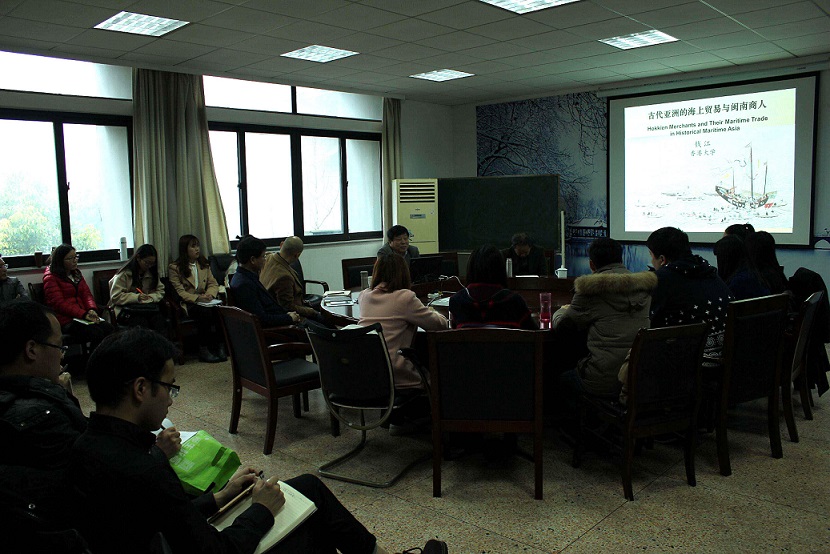|
On 24 March 2017, Professor Qian Jiang of Hong Kong University presented a seminar on Minnan Merchants and Ancient Sea Trade in Asia at the Five Continents Forum.
According to Professor Qian, the people of south Fujian, better known as Hokkiens, have a long seafaring tradition. Isolated on the remote southeastern periphery of China, they cast their eyes on the territories beyond the sea as early as the tenth century. Sporadic records suggest that Hokkien merchants were actively engaged in trading at emporia ranging from Korea in the north to Sumatra in the south. With the development of maritime trade, they started to sojourn overseas, and some of them even stayed abroad for a very long period. Hokkien merchants were known for their commercial acumen and ability to adapt to different environments abroad. Nevertheless, they still frequently relied on various institutional mechanisms to protect or advance their commercial interests. Invariably they were very creative in establishing business institutions and forming different ethnic networks. Apart from developing a wide spectrum of networks in their daily business practice, they showed various cultural characteristics that differentiated them from other Chinese merchants. As the most daring entrepreneurial group in early modern Asia, Hokkien merchants performed quite well in early maritime Asia. But as a marginal trade group, their status in overseas society was always subordinate despite their commercial success. This lecture concisely examined the early Hokkien commercial activities in a number of the major port polities of Asia, with a focus on their sojourning communities in historical maritime Asia and their unique networks and culture.
Both faculty staffs and students became active participants in the question and answer part before the end of seminar.

|
